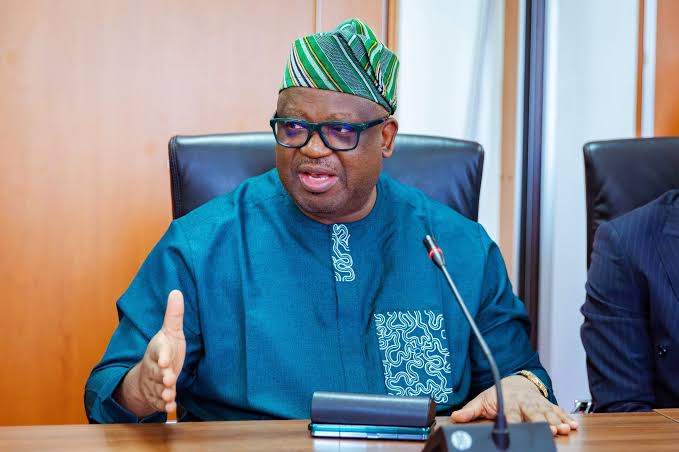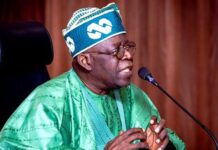By Shu’aibu Usman Leman
For the past two decades, Nigeria’s Plateau State has been a recurring headline, both domestically and internationally, and tragically, for all the wrong reasons.
Once celebrated as the nation’s “safe haven” and proudly proclaiming itself the “Home of Peace and Tourism,” the state has been transformed into a theatre of conflict, leaving a devastating trail of lost lives, destroyed property, and hundreds of thousands displaced. The idyllic image has been shattered by a relentless series of sectarian clashes that have stubbornly resisted numerous attempts at resolution.
The intensification of this tragic cycle can be traced back to events like the horrific massacre of 150 individuals in Kuru Karama, Riyom Local Government, in January 2010, perpetrated by armed militia groups.
This was followed by the even more staggering loss of life in Dogo Nahawa in March of the same year, where over 500 people, including defenceless women, children, and even a four-day-old baby, were brutally murdered in what was believed to be a reprisal attack. In one area alone, the barbarity saw the slaughter of five infants and 28 children aged five and under.
Sadly, this initial wave of extreme violence proved to be a grim harbinger of what was to come.
The state has become deeply fractured along sectarian lines, with certain areas effectively becoming “no-go-zones” for particular groups. This division has been further exacerbated by more recent atrocities.
In August 2021, 25 travellers in transit in Bassa and Jos North Local Governments were intercepted and killed by suspected sectarian militia near Jos. Adding to the agony, just days later, unknown gunmen invaded Yelwan Zangam Village, close to the University of Jos, claiming the lives of 37 people in what appeared to be a retaliatory act.
The continuous killing of innocent citizens, particularly the recent distressing events, has understandably evoked a feeling of dread.
Many express a profound disappointment at the perceived lack of decisive political will from the Federal Government to effectively halt these wanton acts of violence.
This inaction has seemingly emboldened aggrieved groups to resort to self-help, perpetuating a vicious cycle of brutal reprisal attacks.
This breakdown of law and order has regrettably placed Nigeria on the list of nations with fragile status.
The recurring violence, while seemingly amorphous, is often given an ethno-religious colouring by unscrupulous individuals. Renegade politicians and jingoists exploit the situation for their own selfish gain, leaving Plateau State in a constant state of simmering tension.
Hundreds who can afford to have fled their homes, while thousands of internally displaced persons remain in desperate circumstances.
The onset of the rainy season has further compounded the crisis. Farmers are now unable to tend to their land due to the presence of dangerously armed persons, including transnational organised criminal gangs and other freelance armed actors, who continue to target vulnerable communities. This disruption to livelihoods threatens to push the humanitarian crisis and environmental risks in North Central Nigeria, particularly on the Plateau, to extreme levels.
The beauty of Plateau State continues to suffer under the grip of violent groups and sectarian militias, posing a significant threat to the unity of the nation. This situation is largely attributed to years of poor governance and neglect, which have systematically undermined the stability of the region.
Public dissatisfaction with the Federal Government’s approach to the security challenges is palpable. The escalating and negative impact of the activities of Fulani herdsmen on the inhabitants of Central Nigeria is a major concern.
The perceived lenient approach taken by security personnel towards these activities has fuelled the contention that the federal government is unwilling to address the issue squarely.
The continued practice of open grazing, an age-old tradition, is increasingly seen as unsustainable in modern Nigeria, yet the government at the centre has been accused of turning a blind eye to this worrying phenomenon.
Nigerians have repeatedly voiced their concerns about acts of selective justice.
The contrast between President Muhammadu Buhari’s strong condemnation of the killing of travellers in Bassa Local Government, where he vowed to “fish out the perpetrators of this gruesome massacre,” and his apparent silence following the Yelwa Zangam killings had not gone unnoticed.
The timing of the President’s attendance at his son’s lavish wedding, amidst the grief of the affected community, further fuelled public dismay.
Alarmingly, there have been reports of religious clerics making irresponsible calls for their followers to take up arms and seek revenge for any attack or perceived wrong.
Such pronouncements are a dangerous and reckless disregard for the potential consequences and are unequivocally condemned as retrogressive and inflammatory. The lessons from the conflicts in other nations should serve as a stark warning.
The sanctity of life is a fundamental principle. Across Nigerian traditional societies and within the major religions, murder is forbidden.
As the Torah states, “Anyone who destroys a human life is considered as if he had destroyed an entire world, and anyone who preserves a human life is considered to have preserved an entire world.” Similarly, Jesus’ teachings in the Bible emphasise the profound value of human life, and in Islam, the intentional taking of a life is strictly forbidden.
It is crucial that the various communities within Plateau State actively promote peaceful co-existence and seek alternative means of resolving their differences, rather than resorting to the deadly consequences of violence.
Nigeria, a nation of immense potential, continues to be held back by the actions of violent groups, a situation exacerbated by years of maladministration and the exploitation of national resources by a select few.
This has created a fertile ground for recruitment into deadly groups, who often draw support from impoverished and unemployed youths seeking hope and a basic income.
It is imperative that Nigeria adopts a strategy of coalition building, founded on fairness and equity for all contending groups, to prevent a potential implosion instigated by the unacceptable events unfolding on the Plateau.
The ongoing attacks serve as a stark warning that the situation is critical, demanding a proactive and decisive response from the federal government to avert further extensive catastrophes.
Tragically, renewed attacks on communities in Plateau State in late March this year have resulted in the deaths of at least 52 people, including children, with many others still missing.
This latest surge in violence targeted six villages within the Bokkos Local Government Area: Ruwi, Mangor, Daffo, Manguna, Hurti, and Tadai. Numerous homes and vital food supplies were destroyed, leading to mass burials for the victims.
* Ruwi Community: Suffered 11 fatalities, including 10 mourners targeted by suspected cattle herders, an incident that ignited this recent wave of violence.
* Hurti Village: Five children tragically perished in a fire.
* Manguna: Four individuals were killed.
* Daffo: One death has been confirmed.
* Mangor and Tadai: While specific casualty figures are still emerging, these villages were also directly impacted by the attacks, with significant property destruction and displacement.
The Plateau State government has reported the arrest of several individuals suspected of involvement in these attacks, a move welcomed as a step towards addressing the suffering of the affected communities.
Governor Caleb Mutfwang has also initiated strategic measures aimed at improving intelligence gathering, enhancing surveillance, and establishing rapid response systems in collaboration with security forces, with the goal of bolstering security and preventing future atrocities.
These recent violent incidents are part of a broader and deeply entrenched conflict in Plateau State, primarily between predominantly Fulani herders and various farming communities.
This conflict is driven by a complex interplay of ethnic and religious tensions, fierce competition for increasingly scarce land resources, and the detrimental effects of climate change on livelihoods. Earlier in 2023, the Mangu area witnessed horrific violence that claimed over 300 lives, a tragedy that subsequently spread to other regions, including Bokkos and Barkin Ladi, underscoring the interconnected nature of the conflicts within the state.
Amnesty International has voiced grave concerns regarding the perceived inadequate response of security forces to prior warnings of potential attacks, leaving rural communities feeling exposed and unprotected.
The organisation estimates that between December 2023 and February 2024, a staggering 1,336 individuals were killed in the resurgence of violence across the region, highlighting the immense scale and severity of the ongoing crisis.
They have reiterated their urgent call for a thorough and independent investigation into these killings, emphasising the critical need for accountability to break the cycle of impunity and deliver justice for the victims and their grieving families.
In conclusion, the enduring crisis in Plateau State, marked by decades of escalating violence and the tragic loss of countless lives, demands a fundamental shift in approach.
The cycle of sectarian clashes, fueled by ethno-religious manipulation, competition for dwindling resources exacerbated by climate change, and a perceived lack of decisive governmental action, has brought immense suffering and instability to a once peaceful region.
The recent surge in attacks in Bokkos Local Government, resulting in the deaths of at least 52 people and the displacement of many more, serves as a stark reminder of the urgent need for comprehensive solutions.
Addressing this deep-seated conflict requires more than just security interventions.It necessitates a concerted effort to foster genuine reconciliation between communities, ensure accountability for perpetrators of violence, address the underlying issues of land scarcity and economic hardship, and build trust in governance structures.
Without a holistic strategy that prioritises justice, equity, and sustainable development, Plateau State risks remaining trapped in a devastating cycle of violence, with far-reaching consequences for the unity and stability of Nigeria as a whole.
Leman, is former National Secretary of Nigeria Union of Journalists (NUJ)
Email:shuaibuusmanleman@yahoo.com









